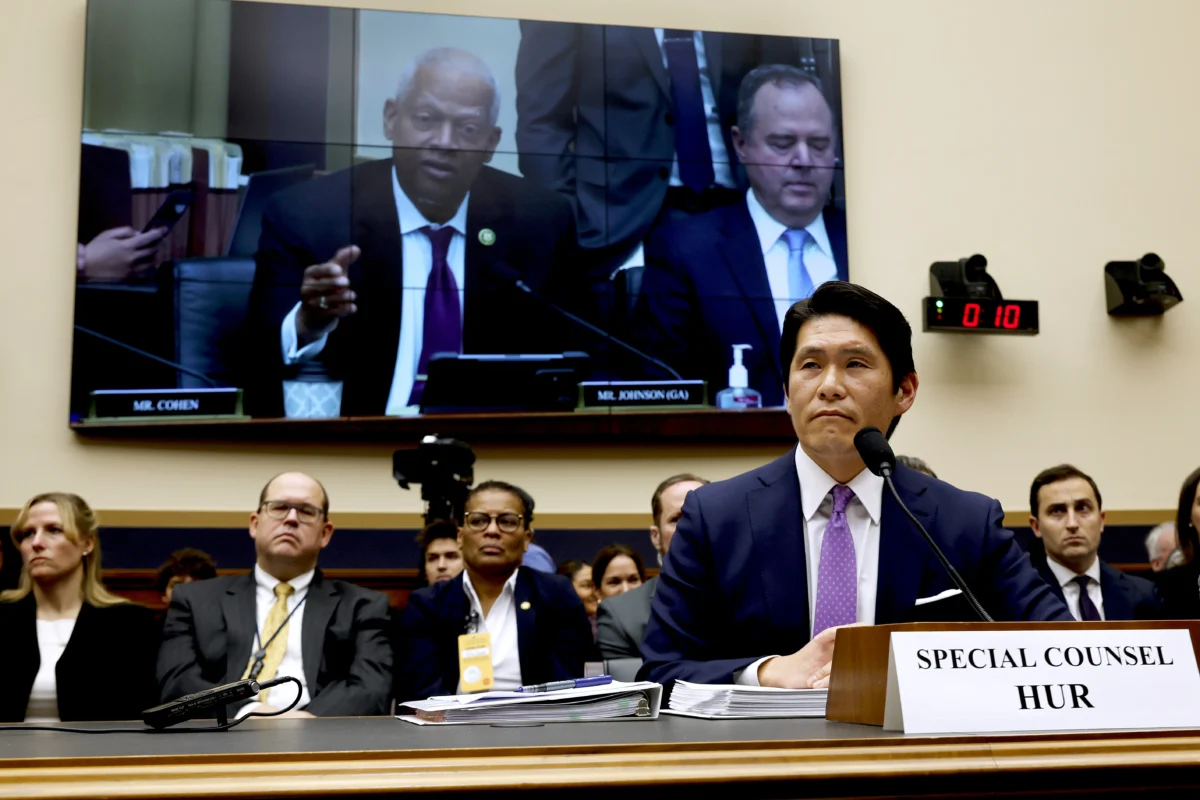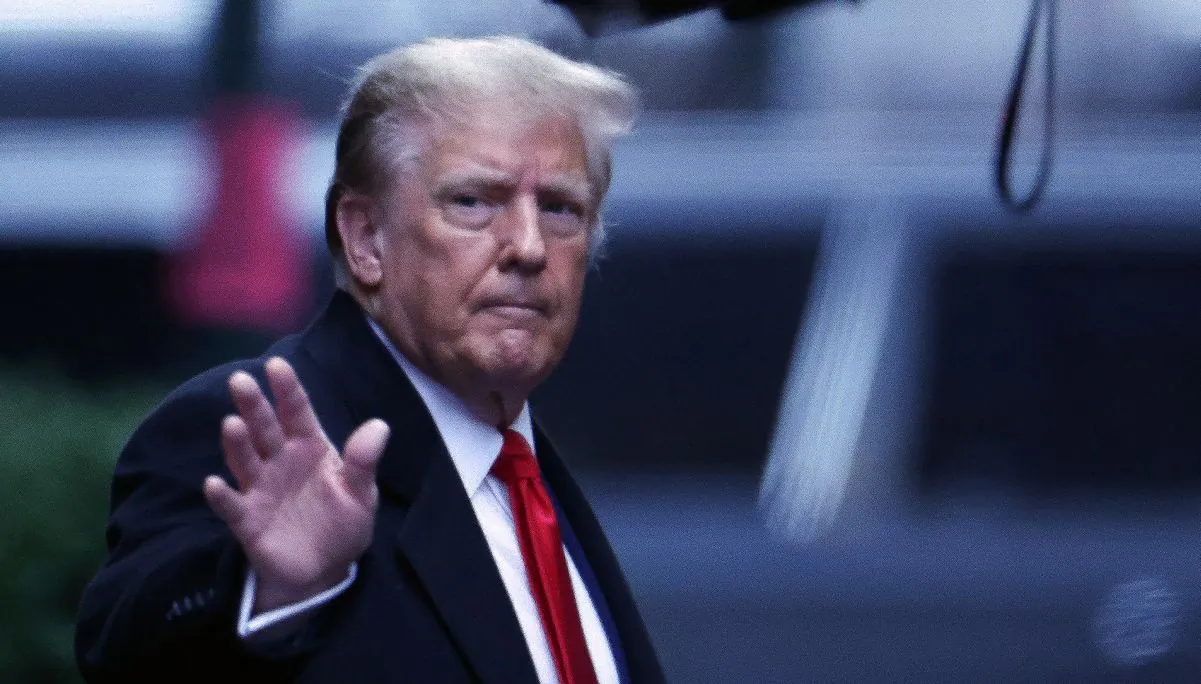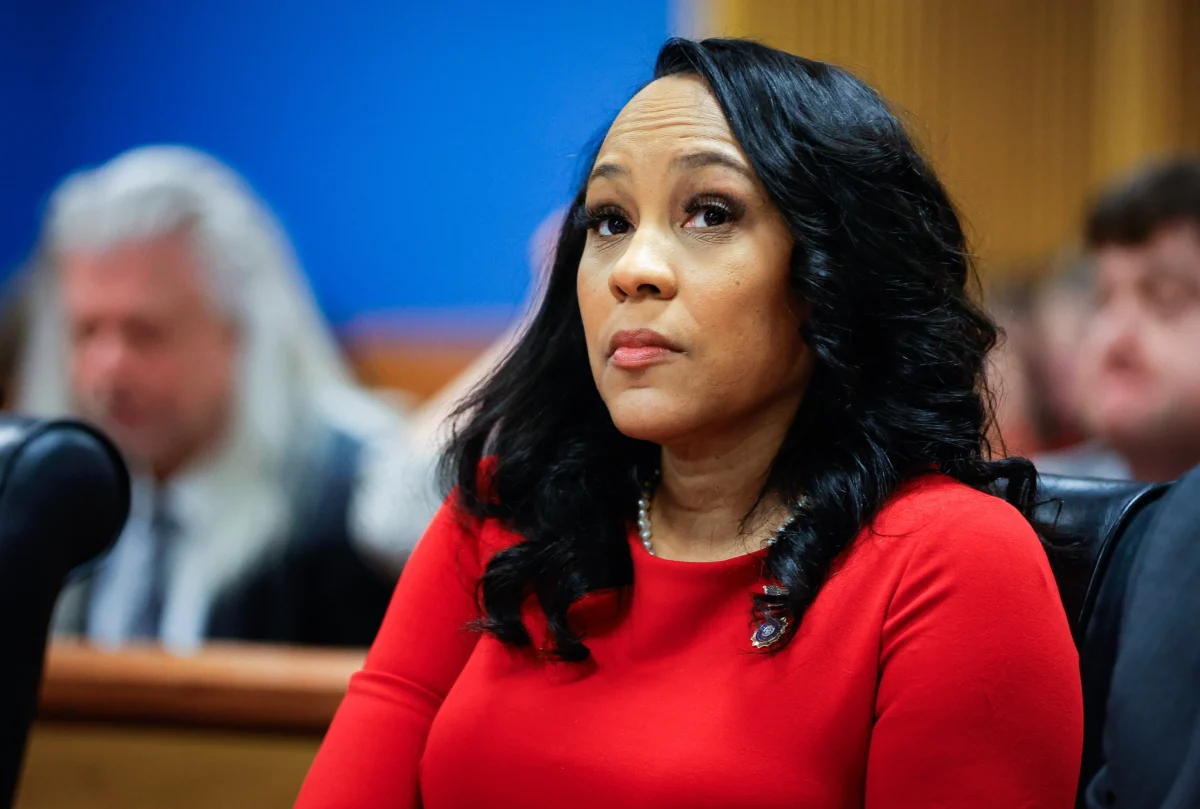FORT PIERCE, Fla.—Roughly 24 hours after a Georgia judge dropped some of the charges filed against him there, former President Donald Trump’s attorneys will argue in a Florida court that the federal classified documents case should be thrown out.
President Trump on March 14 arrived at the courthouse to appear before U.S. District Judge Aileen Cannon in Fort Pierce, Florida, as his attorneys argue two of the four motions they filed to dismiss charges against him. One motion argues that 32 charges should be dropped due to “unconstitutional vagueness,” and the other argues the entire superseding indictment should be thrown out pursuant to the Presidential Records Act (PRA).
National security files were routinely taken by past presidents, President Trump’s attorneys said in their argument for unconstitutional vagueness, “and no one suggested that their possession and retention was ‘unauthorized’ as discussed in President Trump’s motion relating to selective and vindictive prosecution.”
The indictment came last year when President Trump, his valet Walt Nauta, and his Mar-a-Lago property manager Carlos De Oliveira were charged after the Department of Justice (DOJ) alleged he mishandled classified documents, which he retained from his time in the White House, in his Mar-a-Lago residence in Palm Beach, Florida.
The DOJ’s prosecution team for this case, led by special counsel Jack Smith, vehemently opposed both of these motions to dismiss and will also appear at the Alto Lee Adams Sr. Courthouse to argue their side. They refrained from calling him “President Trump” in their written arguments.
“Trump is charged with unauthorized possession and willful retention of national defense information,” the prosecution said in its opposition to the vagueness argument. “The statute’s prohibitions are clear. As a former President, Trump could not have failed to understand the paramount importance of protecting the Nation’s national-security and military secrets, including the obligations not to take unauthorized possession of, or willfully retain national defense information.”
Presidential Records Act
On Feb. 22, the former president and his attorneys, Todd Blanche and Christopher Kise, filed a motion to dismiss his case on the basis of the PRA.
In the motion, they argue the PRA “conferred unreviewable discretion on President Trump to designate the records at issue as personal,” and therefore, “President Trump’s possession of those records was not ‘unauthorized.'”
Secondly, Mr. Blanche and Mr. Kise argue that the “PRA’s exclusive remedy for records collection efforts by NARA is civil in nature and forecloses criminal investigations,” referring to the National Archives and Records Administration.
His attorneys concluded that the counts charging President Trump “in the Superseding Indictment fail to state a claim under Rule 12(b)(3)(v) of the Federal Rules of Criminal Procedure.”
“Accordingly, pursuant to the PRA, the Superseding Indictment must be dismissed,” they added.
In opposition, DOJ prosecutors Jay Bratt and David Harbach assert that “Trump’s claims rest on three fundamental errors, all of which reflect his view that, as a former President, the Nation’s laws and principles of accountability that govern every other citizen do not apply to him.”
Specifically, prosecutors say the PRA “prohibits the unauthorized possession and willful retention of national defense information.”
“Even if the raft of highly classified documents that Trump took from the White House to Mar-a-Lago were somehow categorized as ‘personal’ under the PRA, that would not render his retention of those documents ‘authorized,'” they added.
Prosecutors say the “authorization for a former President to possess classified information comes from the applicable executive order—not from the PRA—and Trump was not authorized to possess classified records at all,” let alone in “unsecured locations at Mar-a-Lago.”
They also assert that the “charged documents are indisputably presidential, not personal, and Trump offers no basis to conclude otherwise.”
Lastly, prosecutors argue President Trump is wrong when he suggests that the PRA’s “civil remedy for recovering presidential records preempts the Justice Department’s authority to investigate and enforce criminal law.”
Instead, the DOJ claims the “civil remedy” of the PRA solidifies “Congress’s determination that the United States owns presidential records” and not the sitting president or former president.
President Trump and his attorneys filed a reply brief on March 13 in support of the motion to dismiss his indictment based on the PRA, responding to the DOJ’s opposition.
His attorneys claim the documents in question were designated as “personal records” pursuant to the PRA, and therefore, the DOJ is “foreclosed as a matter of law” from establishing that the former president’s retention of those records was “unauthorized.”
They also say that “DOJ, NARA, and even the Biden Administration’s White House Counsel” have adopted similar positions by arguing that “PRA designations by former presidents and vice presidents are not reviewable in criminal proceedings.”

Therefore, his attorneys believe the DOJ’s contrary position is “meritless.”
The defense also claims NARA’s actions were “politically motivated” and “driven by the Biden Administration as a political weapon” against President Trump. Therefore, he states NARA’s February 2022 referral to investigate the withheld documents is a “sham,” and its May 2022 “rejection of President Trump’s executive privilege claim violated the Administrative Procedure Act.”
Lastly, he and his attorneys claim there were not “reasonable grounds to believe there had been a violation of Federal criminal law” because of the “unbroken chain of custom and history of NARA inaction with respect to PRA records designations.”
They argued that former President Bill Clinton permitted Taylor Branch to write about tapes containing classified information and that the DOJ and NARA “hardly lifted a finger in response.”
If the DOJ’s current position didn’t apply to President Clinton, President Trump believes it shouldn’t apply to him either.
“The Special Counsel’s Office should not be permitted to predicate an unlawful prosecution on a contrary interpretation of the PRA,” his attorneys wrote.
‘Unconstitutional Vagueness’
The former president’s lawyers also argued that the section of the U.S. Code used for the charges was void due to vagueness under the vagueness doctrine.
According to Cornell Law School’s Legal Information Institute, the vagueness doctrine is “a constitutional rule that requires criminal laws to state explicitly and definitely what conduct is punishable. Criminal laws that violate this requirement are said to be void for vagueness. Vagueness doctrine rests on the due process clauses of the Fifth and Fourteenth Amendments of the U.S. Constitution.”
The intention is to require “fair notice of what is punishable” in order to “prevent arbitrary enforcement of the laws.”
The statute in question, 18 U.S. Code § 793(e), states, in part, “Whoever having unauthorized possession of … any document … relating to the national defense, or information relating to the national defense which information the possessor has reason to believe could be used to the injury of the United States or to the advantage of any foreign nation … willfully retains the same and fails to deliver it to the officer or employee of the United States entitled to receive it … Shall be fined under this title or imprisoned not more than ten years, or both.”
The defense argued that the wording is too vague, specifically around the alleged undefined clauses “unauthorized possession,” “relating to the national defense,” and “entitled to receive it.” They argued that President Trump was operating within the framework of the PRA, acted as “the ultimate Original Classification Authority,” has executive privilege, and “is entitled to immunity for his official acts.”
They also specifically asked that “Count 19” be dismissed because they said President Trump maintained the necessary security clearance during the time alleged in the indictment.
However, the prosecution asked that the motion be rejected, arguing that President Trump had full knowledge of the fact he was no longer authorized to possess the documents, nor did he charge any of them while he was president, and he willfully retained them.
They also argue that the documents were clearly related to national defense, as they allegedly included classified information on the defense and weapons capabilities of the United States, its nuclear programs, and the vulnerabilities of the nation and its allies.
They also argued that the PRA does not authorize a former president to possess classified information.
“These assertions stem from Trump’s pervasive claim that his former service as president somehow exempts him from the laws and principles of accountability that govern every other citizen,” the prosecution said in its written response.

President Trump’s attorneys filed a reply brief on March 13 to the prosecution’s opposition, doubling down on their previous position. They argued the special counsel’s office ignores legislative history and its claim that the “statutes prohibitions are clear” is “baseless and untenable.”
“The Court will be writing on what is essentially a blank slate in the Eleventh Circuit, against the backdrop of the Supreme Court’s recent retrenchment on using ‘judicial gloss’ to save statutes that Congress should have written more clearly,” the defense said. “Judicial gloss” essentially refers to the judges’ previous interpretation of a vague statute rather than hard-defined legislation.
They reaffirmed that “President Trump’s retention of the documents was not ‘unauthorized’ under § 793(e) because he designated them as personal records pursuant to the PRA during his first term in Office.” And they said the statute offers no clarity regarding who is “entitled to receive” the personal records of a former president at that point.
They also argued that “the alleged sensitivity of documents when they allegedly passed through the Oval Office says nothing with respect to whether President Trump was authorized to retain them, the scope of the NDI Clause, and who was entitled to receive the personal records of a former President for the first time in history.”
As with “Count 19,” the defense once again stood its ground but also asked that the court conduct a hearing regarding President Trump’s alleged “Q” clearance and resolve any factual disputes.
6 Charges Dropped in Georgia Case
President Trump had six of his 41 charges dropped in his Georgia racketeering case on March 13 after he and his co-defendants filed several demurrers, or formal challenges to pleadings by the prosecution.
Three of the charges dropped by Fulton County Superior Court Judge Scott McAfee relate to a phone call the former president made to Georgia Secretary of State Brad Raffensperger on Jan. 2, 2021.

Judge McAfee made his ruling days ahead of an expected decision on a motion to disqualify Fulton County District Attorney Fani Willis from prosecuting the case after she was accused of an alleged improper relationship with a special prosecutor and an alleged misuse of public funds in the case.
Despite the charges, and with no other challengers left in the race, President Trump stands to officially become the Republican Party’s nominee for president in the 2024 election. Recent exit polls continue to show that Republican voters still deem him eligible to be president despite any hypothetical conviction.
From The Epoch Times
